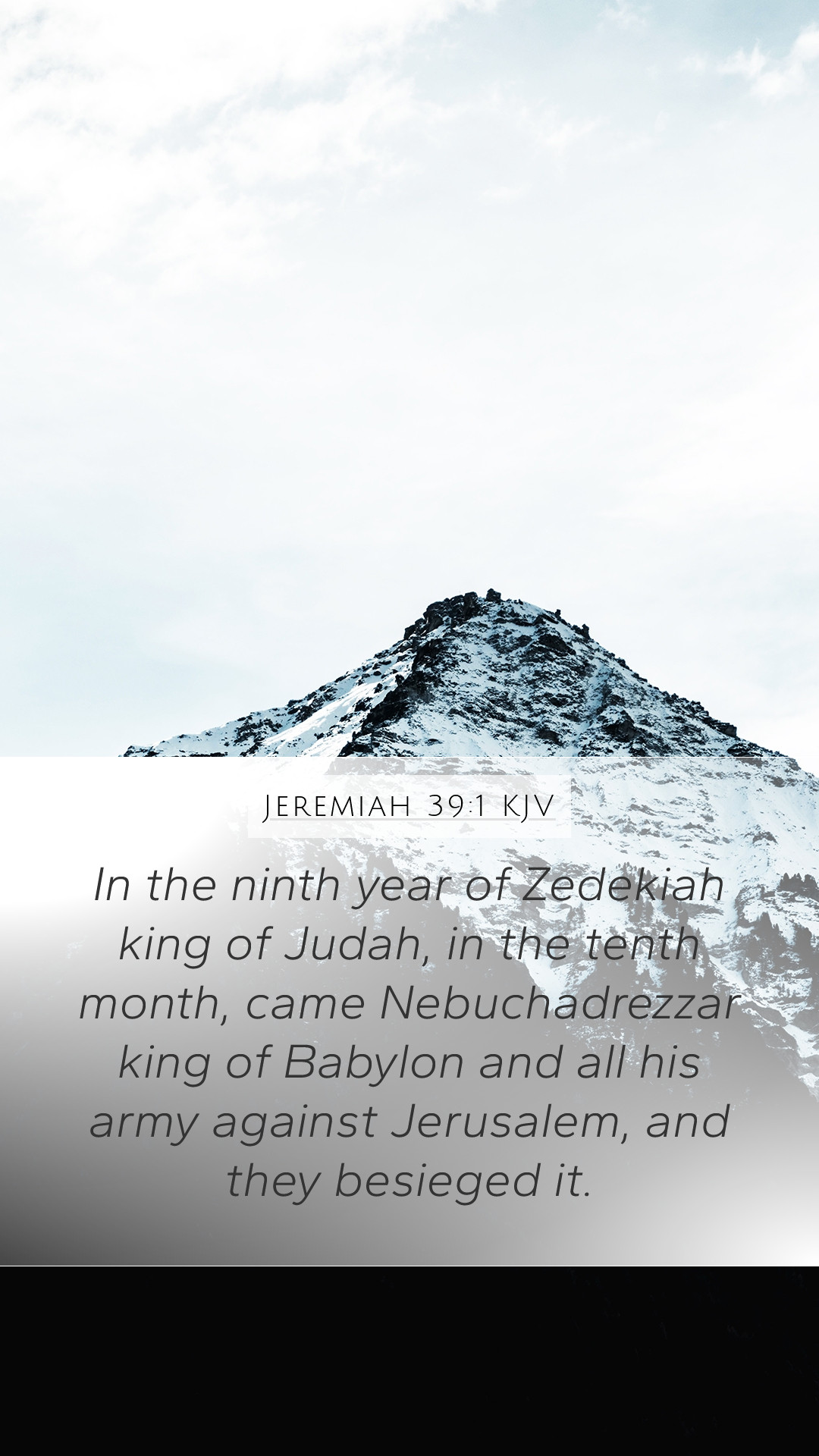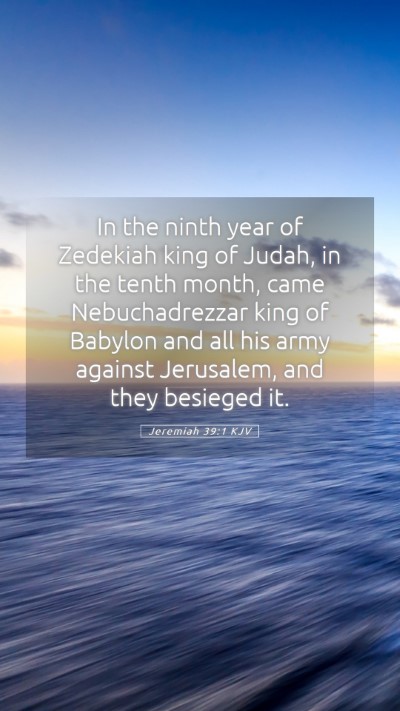Understanding Jeremiah 39:1
Jeremiah 39:1 is a significant verse that highlights a moment of profound historical consequence and can present challenges for those seeking Bible verse meanings and Bible verse interpretations. In this verse, we encounter a turning point in the narrative of the nation of Judah as the Babylonian siege unfolds, marking an important event in biblical history.
Context and Background
This verse occurs during a time of great upheaval for the Israelites. The Jewish people had been warned about their impending punishment due to their sin and rebellion against God. Jeremiah, the prophet, had repeatedly communicated these messages. The events described are tied to the fall of Jerusalem in 586 B.C., an event documented in multiple books of the Bible.
Verse Translation
The verse states: "In the ninth year of Zedekiah king of Judah, in the tenth month, Nebuchadnezzar king of Babylon and all his army came against Jerusalem and besieged it." This succinctly summarizes a major historical event with significant theological implications.
Commentary Insights
-
Matthew Henry's Commentary
Matthew Henry emphasizes the sovereignty of God over nations and the fulfillment of God's prophetic word. He notes that the siege of Jerusalem was a direct result of the peoples' failure to heed prophetic warnings and accepts that divine judgment was at hand.
-
Albert Barnes' Commentary
Albert Barnes provides a detailed look at the geopolitical situation during Zedekiah's reign, noting that his inability to respond correctly to external threats led to dire consequences for the nation. Barnes underlines that the siege not only carries military significance but also represents God's judgment on the nation.
-
Adam Clarke's Commentary
Adam Clarke articulates the historical context of the siege and examines the challenges faced by Zedekiah. He points out that the political alliances Zedekiah entered into did not save him from the inevitable doom prescribed by God, highlighting the futility of relying solely on human wisdom and power.
Key Themes in Jeremiah 39:1
- Divine Sovereignty: The verse underlines God's control over world events, as represented through Babylon's conquest.
- Judgment and Prophecy: The fulfillment of Jeremiah’s prophecies reflects the seriousness of sin and the consequences that follow.
- Historical Significance: This event serves not just as a historical account but as a theological lesson on the nature of God's justice.
Bible Study Insights
When studying this verse, it is crucial to apply Bible study tools and Bible study resources to grasp its implications fully. Understanding the political and spiritual landscape at the time enhances comprehension of Scripture. Additionally, engaging with Bible study groups can provide broader insights as diverse perspectives help illuminate various aspects of the text.
Application of the Verse
In today's context, Jeremiah 39:1 can prompt believers to reflect on the importance of obedience to God and the gravity of ignoring His guidance. It encourages individuals to examine their paths and seek divine wisdom, reminding them of the historical consequences faced by those who turn away from God.
Cross References
- 2 Kings 25:1-2 - A parallel account of the siege of Jerusalem.
- Lamentations 1:1-5 - Reflects on the aftermath of the siege and the suffering of Jerusalem.
- Ezekiel 24:1-2 - Another prophetic word concerning the fall of Jerusalem.
Conclusion
In conclusion, Jeremiah 39:1 is more than just a historical occurrence; it serves as a profound reminder of God's authority and the consequences of disobedience. By engaging with Biblical exegesis and bible study insights, believers can deepen their understanding of Scripture and apply its lessons to contemporary life.


